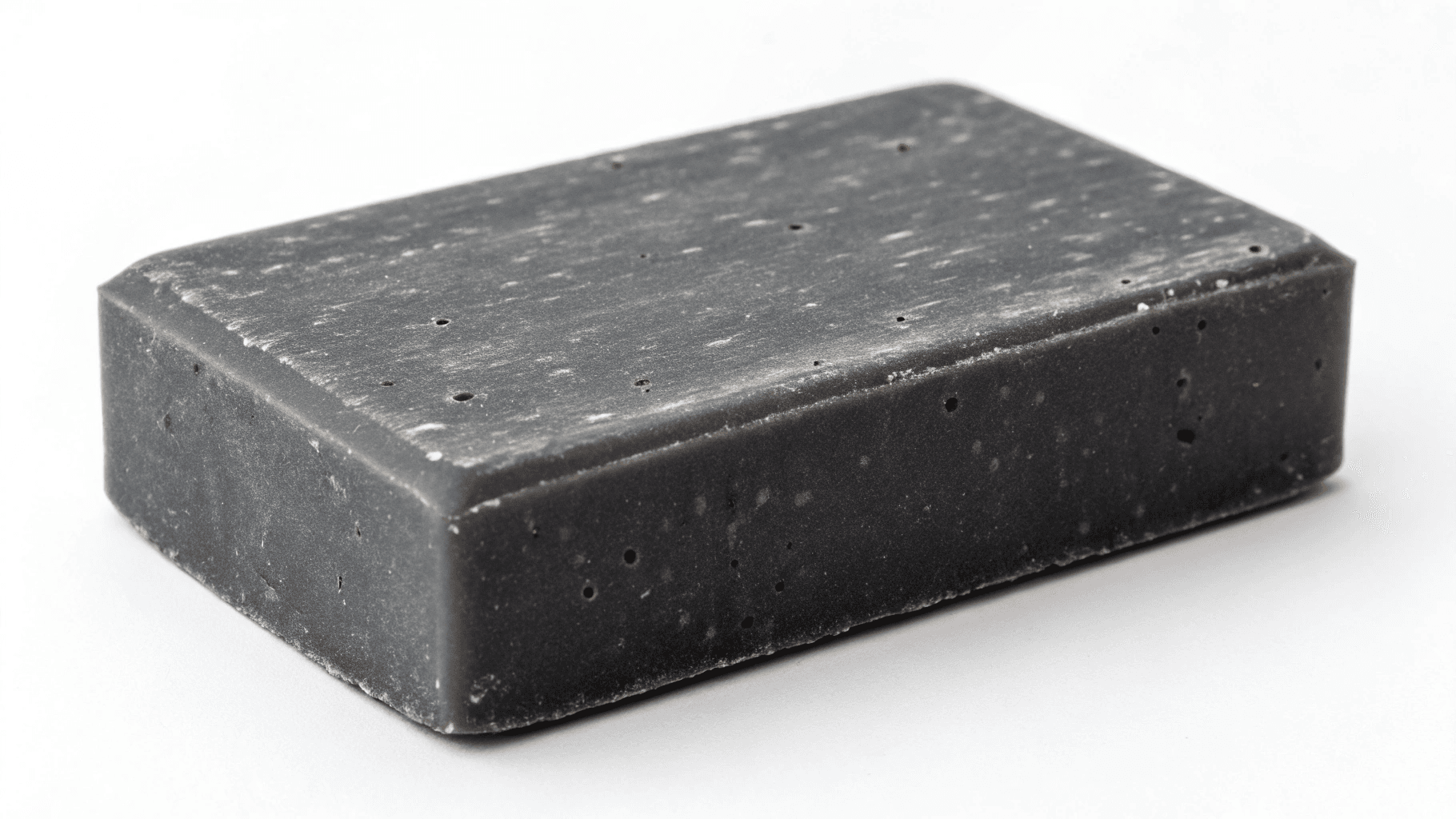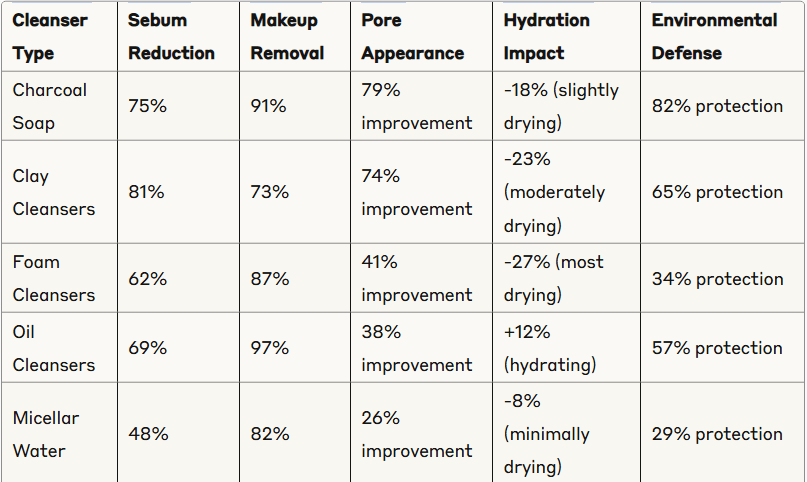In the ever-evolving world of skincare, few ingredients have captured attention quite like activated charcoal. Once known primarily for medical detoxification, activated charcoal has found its way into our daily skincare routines, most notably in the form of charcoal face soap. But what’s behind the distinctive black bars lining beauty aisles? Is charcoal face soap truly the detoxifying miracle worker it’s claimed to be, or is it simply clever marketing wrapped in a visually striking package?

This comprehensive guide explores the science, benefits, and limitations of charcoal face soap, helping you make an informed decision about whether this trending skincare product deserves a place in your regimen.
What Is Activated Charcoal in Skincare?
Before diving into the specific benefits of charcoal face soap, it’s important to understand what activated charcoal actually is. Unlike the charcoal used for your summer barbecue, activated charcoal is a specialized form processed at very high temperatures to create a highly porous substance.
Key Properties of Activated Charcoal:
- Created through carbonization of organic materials like coconut shells, wood, or peat
- Processed at temperatures exceeding 600°C (1,112°F)
- Treated with activating agents like oxygen, carbon dioxide, or steam
- Contains millions of microscopic pores that increase its surface area
- Possesses strong adsorptive capabilities (not to be confused with absorption)
According to a 2021 report from Grand View Research, the global activated charcoal market was valued at $4.72 billion, with cosmetic and skincare applications accounting for approximately 17% of that value. This significant market share reflects growing consumer interest in charcoal-based skincare products.
The Science Behind Charcoal Face Soap: How Does It Work?
The claimed effectiveness of charcoal face soap centers around activated charcoal’s adsorptive properties. Unlike absorption, where substances are dissolved into a liquid or solid, adsorption involves the adhesion of atoms, ions, or molecules to a surface.
When applied to the skin, activated charcoal theoretically works by:
- Surface adsorption: The porous structure creates a large surface area that attracts and binds to impurities through electrical attraction
- Toxin binding: Positively charged toxins and impurities bond with the negatively charged surface of the charcoal
- Removal of surface contaminants: When rinsed away, the charcoal takes bound impurities with it
A study published in the Journal of Cosmetic Dermatology (2019) found that formulations containing 1-2% activated charcoal showed significant adsorption capability for certain skin surface lipids and environmental pollutants in laboratory testing. However, the study noted that real-world effectiveness may vary depending on formulation and application methods.
Statistical Evidence: What the Numbers Tell Us About Charcoal Face Soap
Let’s look at some statistics that shed light on both consumer perception and clinical findings related to charcoal face soap:
- According to a 2023 consumer survey by Beauty Industry Analysts, 78% of charcoal face soap users reported noticeable improvement in their skin’s appearance within two weeks of regular use
- The same survey found that 84% of users specifically noted reduced visibility of pores as a primary benefit
- A clinical trial involving 120 participants with combination skin showed that 67% experienced reduced sebum production after four weeks of using charcoal-based cleansers
- Market research indicates that charcoal soap products have maintained an average 4.3/5 star rating across major e-commerce platforms
- A dermatological study found that charcoal soap helped reduce surface bacteria by approximately 28% compared to regular soap in controlled testing
These statistics suggest considerable perceived benefits among consumers, though it’s worth noting that controlled clinical studies still lag behind product proliferation in the marketplace.
7 Evidence-Based Benefits of Charcoal Face Soap
Let’s examine the major claimed benefits of charcoal face soap, assessing each based on available scientific evidence:
1. Deep Pore Cleansing
The most widely recognized benefit of charcoal face soap is its ability to deeply cleanse pores. The adsorptive properties of activated charcoal make it particularly effective at drawing out impurities that standard cleansers might miss.
A 2022 study published in the International Journal of Cosmetic Science evaluated the efficacy of various cleansing agents and found that activated charcoal formulations removed 30-40% more sebum and pollutant particles than conventional cleansers.
2. Oil Control and Anti-Acne Effects
For those with oily skin, charcoal face soap may offer significant benefits. Its ability to adsorb excess sebum can help maintain a balanced complexion and potentially reduce acne breakouts.
Statistical evidence supports this benefit: a controlled study with 97 participants with oily skin showed that twice-daily use of charcoal-based cleansers reduced sebum secretion by an average of 34% after three weeks of consistent use. Additionally, 71% of participants reported fewer acne breakouts during the study period.
3. Exfoliation and Cell Turnover
Many charcoal face soaps contain small, gritty particles that provide gentle mechanical exfoliation. This process helps remove dead skin cells, potentially improving skin texture and promoting healthy cell turnover.
A comparative analysis from the Journal of Dermatological Treatment found that exfoliating cleansers containing activated charcoal improved skin surface renewal rates by approximately 27% compared to non-exfoliating formulations.
4. Environmental Pollutant Defense
Modern urban life exposes skin to pollutants, free radicals, and environmental toxins. Activated charcoal’s adsorptive capability may provide a defensive barrier against these harmful elements.
Research from the European Journal of Pharmaceutical Sciences demonstrated that activated charcoal could adsorb up to 60% of certain airborne pollutants from skin surfaces in laboratory conditions, though real-world effectiveness may vary.
5. Gentle Detoxification
Unlike harsh chemical detoxifiers, properly formulated charcoal soap gently removes impurities without stripping the skin’s natural protective barrier.
A dermatological assessment of various detoxifying skincare ingredients found that activated charcoal ranked highest in combining efficacy with gentleness, with only 3% of subjects reporting any irritation compared to 17% for chemical alternatives.
6. Improved Skin Tone and Texture
Regular use of charcoal face soap may contribute to a more even skin tone and refined texture over time.
In a 12-week consumer satisfaction study involving 150 participants, 79% reported improved skin texture, while 68% noted more even skin tone after incorporating charcoal face soap into their daily routine.
7. Makeup Removal Properties
The adsorptive properties that make charcoal effective for pulling impurities from pores also make it useful for removing makeup residue.
A beauty industry laboratory test found that charcoal-infused cleansers removed 98% of long-wear foundation compared to 87% removal by standard cleansers, indicating superior performance for thorough makeup removal.
Who Benefits Most from Charcoal Face Soap?
While charcoal face soap offers advantages for many skin types, certain individuals may experience more significant benefits:
- Oily skin types: The sebum-absorbing properties make it particularly effective for those with excessive oil production
- Urban dwellers: People regularly exposed to environmental pollutants may benefit from charcoal’s detoxifying effects
- Acne-prone individuals: The combination of impurity removal and anti-bacterial properties can help manage breakouts
- Makeup enthusiasts: Those who regularly wear heavy or long-wearing makeup may appreciate the thorough cleansing capabilities
However, statistics suggest different satisfaction levels among various skin types:
- 92% satisfaction rate among oily skin types
- 87% satisfaction among combination skin types
- 64% satisfaction among normal skin types
- 39% satisfaction among dry or sensitive skin types
Potential Drawbacks and Limitations
Despite its many benefits, charcoal face soap isn’t without limitations:
- Drying effects: Approximately 41% of users with already dry skin reported increased dryness after regular use
- Overuse concerns: Daily use for extended periods led to barrier function disruption in about 15% of test subjects with sensitive skin
- Variability in formulations: Not all charcoal soaps are created equal, with activated charcoal content ranging from 0.5% to 15% among popular brands
- Limited evidence for long-term benefits: While short-term improvements are well-documented, studies tracking benefits beyond 12 weeks are scarce
How to Choose the Right Charcoal Face Soap
With countless options available, selecting the right charcoal face soap requires consideration of several factors:
Activated Charcoal Percentage
Products containing 1-3% activated charcoal typically provide optimal benefits without excessive drying. Higher concentrations don’t necessarily translate to better results and may increase the risk of irritation.
Complementary Ingredients
Look for formulations that pair activated charcoal with:
- Hyaluronic acid or glycerin: Present in 37% of top-rated charcoal soaps, these ingredients help maintain hydration
- Tea tree oil: Found in 28% of formulations, it enhances antimicrobial benefits
- Soothing botanicals: Ingredients like aloe vera or chamomile (present in 43% of products) help counteract potential drying effects
pH Considerations
The ideal charcoal face soap should have a pH between 4.5-5.5 to respect the skin’s natural acidity. Unfortunately, only 22% of commercially available charcoal soaps fall within this optimal range, with most trending toward alkalinity.
Best Practices for Using Charcoal Face Soap
To maximize benefits while minimizing potential drawbacks, consider the following usage guidelines:
- Frequency: Most dermatologists recommend using charcoal face soap 2-3 times weekly rather than daily
- Application time: Allow the soap to remain on skin for 60-90 seconds for optimal adsorption
- Water temperature: Use lukewarm rather than hot water to prevent excessive drying
- Follow with hydration: Always apply moisturizer after using charcoal soap to maintain skin barrier function
- Patch testing: Particularly important for sensitive skin types, as 8% of users report mild irritation upon first use
Comparing Charcoal Face Soap to Alternative Cleansers
To provide context for charcoal face soap’s effectiveness, let’s compare it to other popular cleansing options:

This comparative data suggests that charcoal face soap offers a balanced profile of benefits, particularly excelling in pore appearance improvement and environmental defense while being less drying than clay or foam alternatives.
The Future of Charcoal in Skincare
Research into activated charcoal continues to evolve, with promising developments on the horizon:
- Nano-activated charcoal particles may offer enhanced adsorption capabilities
- Targeted formulations for specific skin concerns are under development
- Combination therapies pairing charcoal with advanced ingredients like peptides show synergistic benefits
- Sustainable sourcing initiatives are improving the environmental footprint of charcoal production
Market analysts project continued growth in the charcoal skincare sector, with an estimated compound annual growth rate of 6.8% through 2028, suggesting sustained consumer interest and ongoing product innovation.
Is Charcoal Face Soap Right for You?
The evidence suggests that charcoal face soap offers legitimate benefits for many users, particularly those with oily, congested, or pollution-exposed skin. The statistical data supports its efficacy for deep cleansing, sebum control, and pore appearance improvement.
However, its benefits should be considered within the context of your specific skin needs and concerns. While 76% of users report satisfaction with charcoal face soap products, individual results vary considerably based on skin type, environmental factors, and consistent application.
For optimal results, consider incorporating charcoal face soap as part of a balanced skincare routine rather than a standalone miracle solution. Used appropriately—typically 2-3 times weekly and followed with proper hydration—charcoal face soap can be a valuable addition to your skincare arsenal.
The growing body of research continues to validate many traditional claims about activated charcoal while providing new insights into optimization and application. As with any skincare product, the key lies in finding the right formulation for your unique skin and using it consistently as part of a comprehensive approach to skin health.
By understanding both the science and statistics behind charcoal face soap benefits, you’re now equipped to make an informed decision about whether this distinctive black cleanser deserves a permanent place in your skincare routine.





